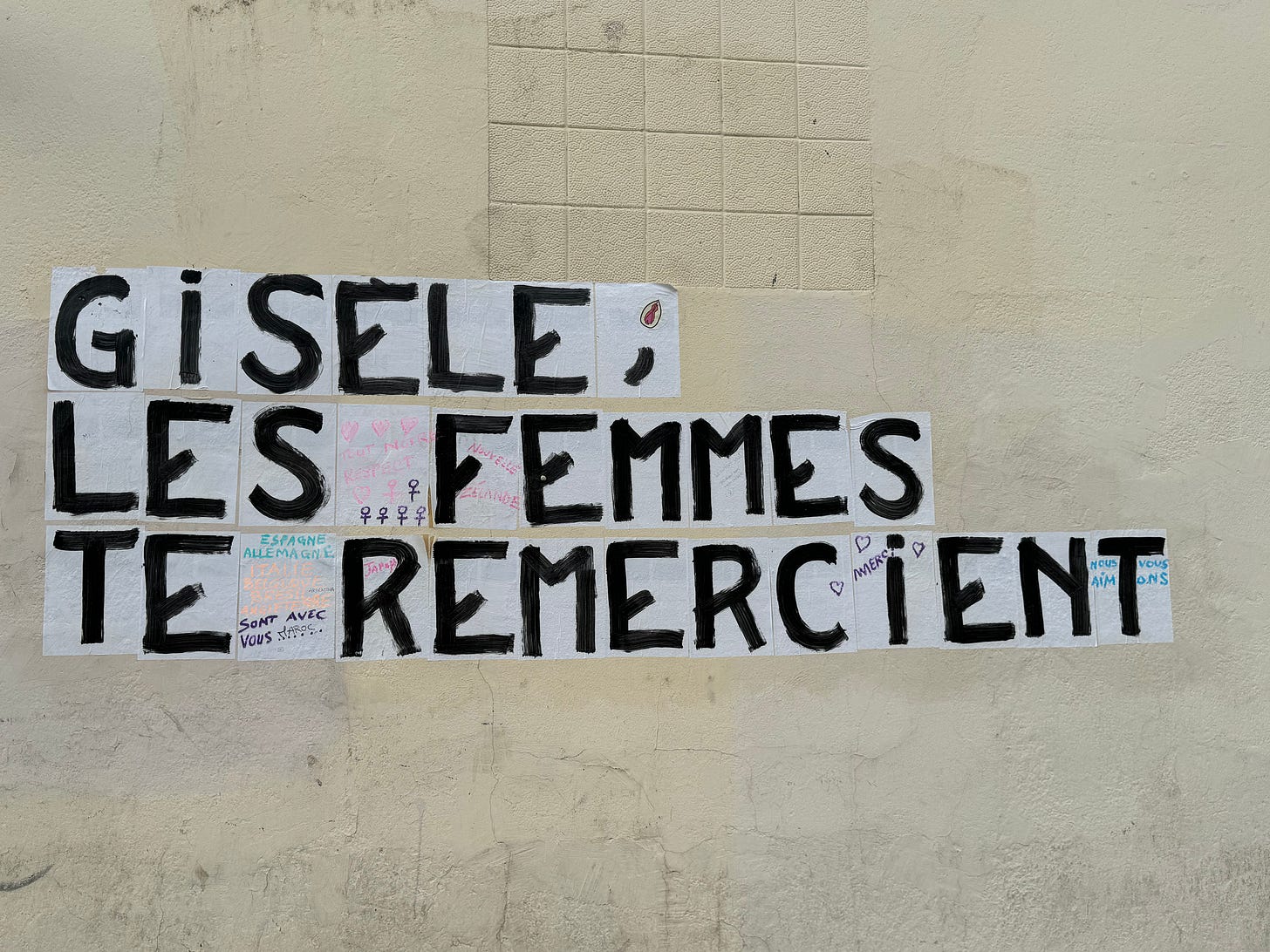
It’s been just a little more than two weeks since the election and it feels as though we’re living in a different world. I left New York on election day feeling optimistic, albeit cautiously so. The Wi-Fi was out on my flight, which is normally an annoyance for me but, this time, turned out to be a blessing. When I landed in Paris at 6:30 am local—12:30 am in New York and 9:30 pm in California—and turned on my phone, the election had yet to be called but the signs were clear. Donald Trump had just taken North Carolina. By the time we had taxied to our gate, he had won Georgia. It wasn’t officially over, but it was over.
I was awake the whole flight and my ability to remain positive is directly related to the number of hours of sleep I get; in other words, I was depressed as I landed in a very gray Paris and headed to my house. Things didn’t get better from there. After napping for a few hours, I took a train down to Avignon to attend the trial of the 51 men who raped Gisèle Pelicot, the woman whose husband drugged her and invited men into their home to sexually abuse her. I’ve been there pretty much ever since.
It has not restored my faith in humankind. More specifically, in men. The friends I spoke to in the US after the election told me they were determined not to descend into despair. It was too late for me; I was already drowning in it. After seeing more than half the US vote for a man who has demonstrated an utter disregard for women’s bodily autonomy, I was now listening to a bunch of French men explain why having sex with a clearly unconscious woman (the court screened video of the assaults and there is absolutely no way a reasonable person could have thought she was simply sleeping or faking sleep) does not constitute rape. The men—sometimes her husband joined in—used her body like she was a blowup doll.
The gendered nature of the election combined with the contempt with which the defendants in the trial treated Gisèle left me wondering if men simply hate women.
I have since managed to get some sleep and claw my way out of unmitigated despondency, but I can’t say I’m feeling optimistic. As I wrote earlier, when the trial first started, I was reading the Histories by Herodotus, in which the Lydian king arranges for his bodyguard to see his wife naked, as though her body was his to share. I remain amazed at how little has changed in 2,500 years.
I confess that it all makes me feel a little hopeless. And yes, of course I realize that there are many good men out there. I would say that the vast majority of men in my life fall into that category. But there are limits, even with them. Even the men who intellectually understand that we live in a patriarchal society and much of what that means for women aren’t necessarily able to recognize its effects on their own. To their credit, once the costs of patriarchal structures are pointed out to them, they are able to see them, but even the “good men” are often blind to the ways in which women have to fight to be accepted as human beings of equal value. We’ve been fighting for that for more than two millennia, and we’re still not there.
So what do we do? It’s tempting to retreat into our little bubbles of like-minded people. Very tempting. But that doesn’t get us anywhere. If we do that, there is no chance that things will get better. I’m not optimistic that we can change the tide of history, but we can make a difference of some sort. Even a small difference is something.
I will continue to sit through the Pelicot trial which, mercifully, has only a few weeks left. I will be writing about Gisèle—perhaps here, certainly in the media—about her bravery, and about why what happens in that courtroom is relevant to all of us.
Gisèle has been a victim of patriarchy, of sexism, of misogyny—perhaps more than anyone I have seen in my lifetime. But she has refused to let herself bear the “victim” label; she has rejected that status. Watching her in and out of the courtroom these past few weeks has been profoundly inspiring; moving.
Gisèle is an ordinary woman, a grandmother, who has modeled for women the world over what resistance looks like. That has mattered. Wherever she goes, she is stopped by women who want to thank her for what she has done. Women send her letters from all over the world, some simply addressed to “Gisèle,” the way children address letters to “Santa.” They find their way to her.
Gisèle has shown us that any one of us is capable of engendering change if we have the courage to do so. It behooves us all to follow her example.




You are right, the double whammy of this trial and the election in the US has gobsmacked all women worldwide. I remember when I first read about this case, I had to re-read it several times because my brain could not comprehend what my eyes were seeing.
Thank you for writing about this.